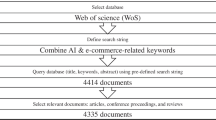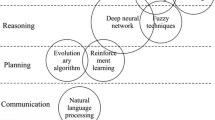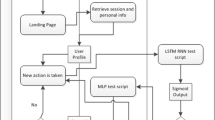Abstract
Big data analytics is essential for many industries that use computing applications, like real-time purchasing and e-commerce. Big data is used to promote products and improve the communication among retailers and shoppers. At present, individuals frequently utilize online promotions to identify the best shops for purchasing higher-quality goods. This shopping experience shared on social media platforms can be used to observe the opinions regarding the shoppers shop. New customers search the shop for knowing information about manufacturing date (MRD), manufacturing price (MRP), offers, quality, and suggestions. All these information are provided only through previous customer experience. On the product cover or label, the MRP and MRD are already available. Numerous methods have been employed to predict the details of product, but none of them provides accurate details. To overcome these issues, binarized spiking neural networks optimized with Nomadic People Optimization-based sentiment analysis is proposed for social product recommendations (BSNN-NPO). The product–product (P–P) similarity and collaborative filtering (CF) techniques are used for modeling the new recommendation system. The P–P similarity approach predicts the best products, while CF method predicts the best shops. The product data along customer reviews is gathered through Amazon product recommendation. From the results and comparison, it is found that the proposed BSNN-NPO method outperforms than other approaches. The performance of proposed technique offers higher mean absolute percentage error 38.56%, 23.67%, and 30.22% and lower mean squared error 34.67%, 45.7%, and 15.21% compared to the existing models, respectively.













Similar content being viewed by others
References
Kumar S, De K, Roy PP (2020) Movie recommendation system using sentiment analysis from microblogging data. IEEE Trans Comput Social Systems 7(4):915–923
Ramshankar N, Joe Prathap PM. Reviewer reliability and XGboost whale optimized sentiment analysis for online product recommendation. J Intell Fuzzy Syst (Preprint):1–5.
Solairaj A, Sugitha G, Kavitha G (2023) Enhanced Elman spike neural network based sentiment analysis of online product recommendation. Appl Soft Comput 132:109789
Tien Bui D, Abdullahi MA, Ghareh S, Moayedi H, Nguyen H (2021) Fine-tuning of neural computing using whale optimization algorithm for predicting compressive strength of concrete. Eng Comput 37(1):701–712
Jaishankar B, Naveen J, Marimuthu B, Jayabalan B, Mathivanan M (2022) A multi-preference integrated algorithm for deep learning based recommender framework. Concurr Comput: Pract Experience 34(25):e7241
Periakaruppan S, Shanmugapriya N, Sivan R. Self-attention generative adversarial capsule network optimized with atomic orbital search algorithm based sentiment analysis for online product recommendation. J Intell Fuzzy Syst (preprint) 1–6
Wang Y, Wang M, Xu W (2018) A sentiment-enhanced hybrid recommender system for movie recommendation: a big data analytics framework. Wireless Commun Mobile Comput
Li K, Kim DJ, Lang KR, Kauffman RJ, Naldi M (2020) How should we understand the digital economy in Asia? Critical assessment and research agenda. Electron Commer Res Appl 44:101004
Robinson M, Cleary PW (2019) Effect of geometry and fill level on the transport and mixing behaviour of a co-rotating twin screw extruder. Comput Part Mech 6(2):227–247
Li S, Jiao F, Zhang Y, Xu X (2019) Problems and changes in digital libraries in the age of big data from the perspective of user services. J Acad Librariansh 45(1):22–30
Chen R, Hua Q, Chang YS, Wang B, Zhang L, Kong X (2018) A survey of collaborative filtering-based recommender systems: from traditional methods to hybrid methods based on social networks. IEEE Access 6:64301–64320
Khan ZY, Niu Z (2021) CNN with depthwise separable convolutions and combined kernels for rating prediction. Expert Syst Appl 170:114528
Sánchez P, Bellogín A (2019) Building user profiles based on sequences for content and collaborative filtering. Inf Process Manage 56(1):192–211
Margaris D, Vassilakis C, Spiliotopoulos D (2020) What makes a review a reliable rating in recommender systems? Inf Process Manage 57(6):102304
Akhtar N, Ahmad W, Siddiqi UI, Akhtar MN (2019) Predictors and outcomes of consumer deception in hotel reviews: the roles of reviewer type and attribution of service failure. J Hosp Tour Manag 39:65–75
Moon S, Kim MY, Iacobucci D (2021) Content analysis of fake consumer reviews by survey-based text categorization. Int J Res Mark 38(2):343–364
Nayak R, Jiwani SA, Rajitha B (2021) Spam email detection using machine learning algorithm. Mater Today: Proc
Alammary AS (2021) Arabic questions classification using modified TF-IDF. IEEE Access 9:95109–95122
Kheradpisheh SR, Mirsadeghi M, Masquelier T (2022) Bs4nn: Binarized spiking neural networks with temporal coding and learning. Neural Process Lett 54(2):1255–1273
Salih SQ, Alsewari AA (2020) A new algorithm for normal and large-scale optimization problems: Nomadic People Optimizer. Neural Comput Appl 32(14):10359–10386
Yi S, Liu X (2020) Machine learning based customer sentiment analysis for recommending shoppers, shops based on customers’ review. Compl Intell Syst 6(3):621–634
Olmedilla M, Martínez-Torres MR, Toral S (2022) Prediction and modelling online reviews helpfulness using 1D Convolutional Neural Networks. Expert Syst Appl 198:116787
Yang L, Li Y, Wang J, Sherratt RS (2020) Sentiment analysis for E-commerce product reviews in Chinese based on sentiment lexicon and deep learning. IEEE access 8:23522–23530
Jagdale RS, Shirsat VS, Deshmukh SN (2019) Sentiment analysis on product reviews using machine learning techniques. In: Cognitive informatics and soft computing. Springer, Singapore, pp 639–647
Hu S, Kumar A, Al-Turjman F, Gupta S, Seth S (2020) Reviewer credibility and sentiment analysis based user profile modelling for online product recommendation. IEEE Access 8:26172–26189
Sinha BB, Dhanalakshmi R (2022) DNN-MF: deep neural network matrix factorization approach for filtering information in multi-criteria recommender systems. Neural Comput Appl 1–5
Yang L, Na JC, Yu J (2022) Cross-modal multitask transformer for end-to-end multimodal aspect-based sentiment analysis. Inf Process Manage 59(5):103038
Chennafi ME, Bedlaoui H, Dahou A, Al-qaness MA (2022) Arabic aspect-based sentiment classification using Seq2Seq dialect normalization and transformers. Knowledge 2(3):388–401
Author information
Authors and Affiliations
Contributions
Gaurav Agarwal was involved in conceptualization, methodology, writing—original draft preparation. Shail Kumar Dinkar helped in supervision. Ajay Agarwal helped in supervision.
Corresponding author
Ethics declarations
Conflict of interests
The authors declare no conflict of interests.
Additional information
Publisher's Note
Springer Nature remains neutral with regard to jurisdictional claims in published maps and institutional affiliations.
Rights and permissions
Springer Nature or its licensor (e.g. a society or other partner) holds exclusive rights to this article under a publishing agreement with the author(s) or other rightsholder(s); author self-archiving of the accepted manuscript version of this article is solely governed by the terms of such publishing agreement and applicable law.
About this article
Cite this article
Agarwal, G., Dinkar, S.K. & Agarwal, A. Binarized spiking neural networks optimized with Nomadic People Optimization-based sentiment analysis for social product recommendation. Knowl Inf Syst 66, 933–958 (2024). https://doi.org/10.1007/s10115-023-01956-w
Received:
Revised:
Accepted:
Published:
Issue Date:
DOI: https://doi.org/10.1007/s10115-023-01956-w




